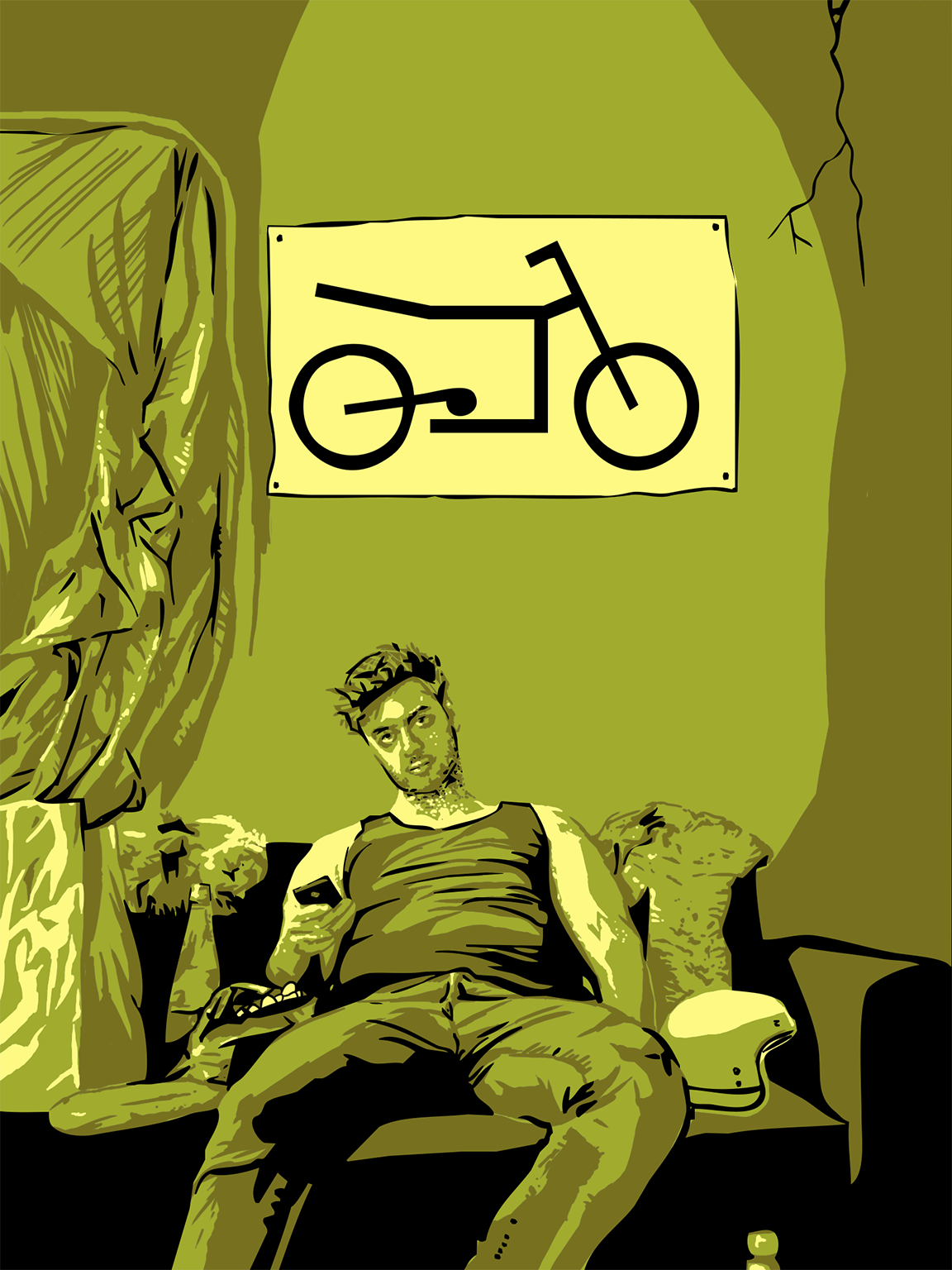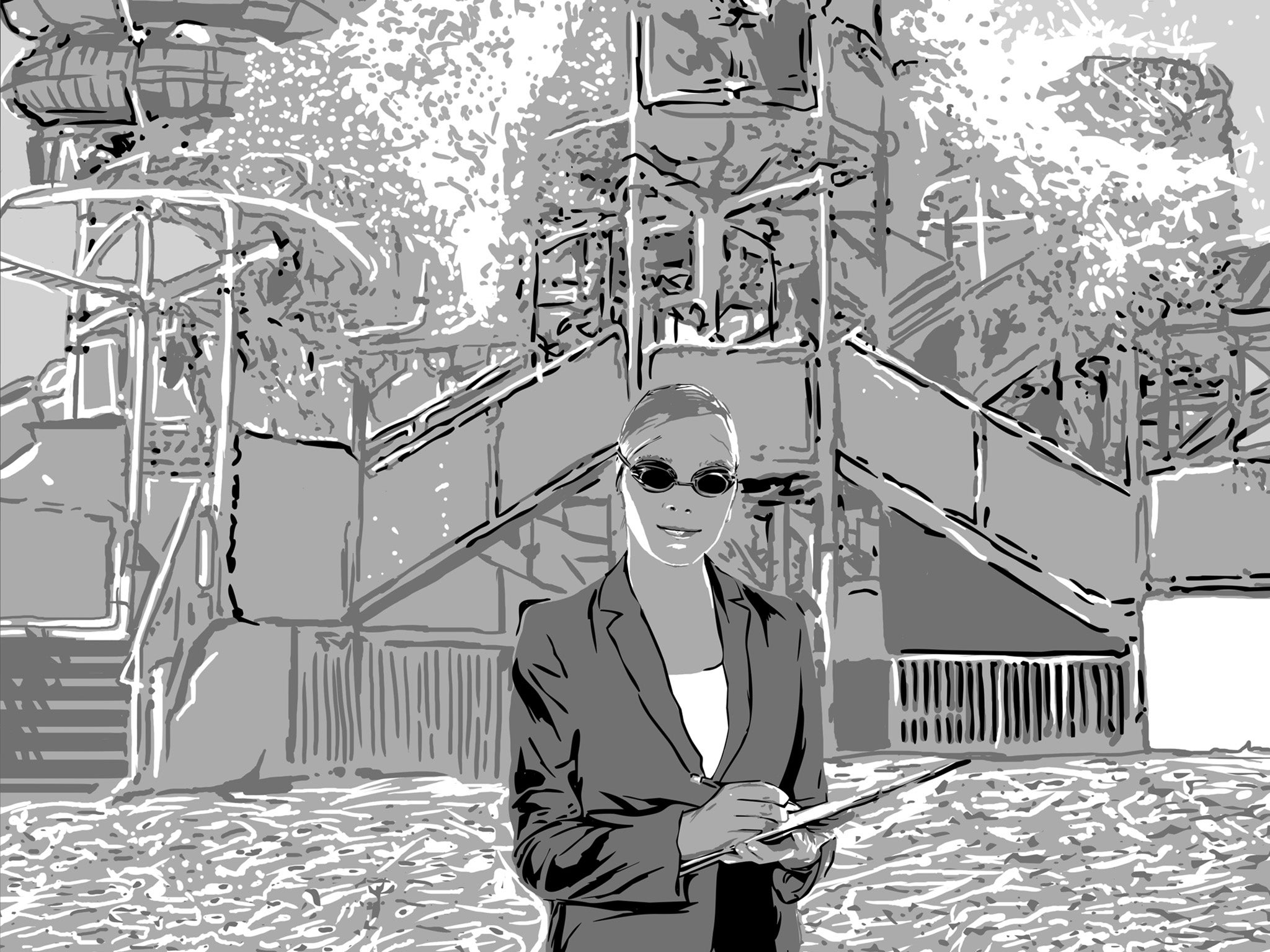So, what do you do ... for a living?
How old are you? Are you pregnant? How much do you earn? In the first of a new series, entitled You Can’t Ask Me That, novelist Christine Manby looks at the numerous questions that we just cannot ask and seeks to explain the reasons why

Your support helps us to tell the story
From reproductive rights to climate change to Big Tech, The Independent is on the ground when the story is developing. Whether it's investigating the financials of Elon Musk's pro-Trump PAC or producing our latest documentary, 'The A Word', which shines a light on the American women fighting for reproductive rights, we know how important it is to parse out the facts from the messaging.
At such a critical moment in US history, we need reporters on the ground. Your donation allows us to keep sending journalists to speak to both sides of the story.
The Independent is trusted by Americans across the entire political spectrum. And unlike many other quality news outlets, we choose not to lock Americans out of our reporting and analysis with paywalls. We believe quality journalism should be available to everyone, paid for by those who can afford it.
Your support makes all the difference.Picture the scene. You’re at a party. You know no one but the host and they’ve had to rush to the kitchen to rescue some smoking vol-au-vents from the oven. You spot a friendly looking fellow guest, also on their own, and sidle over to make their acquaintance by the buffet table. You swap names. You compare notes on your respective journeys to the venue. You talk about the weather. Hasn’t it been strange this year? So far so good. Now what?
The host passes by with those vol-au-vents. You grab one and shove it in your mouth. And before you’ve entirely finished eating it you come out with the line, “So, what do you do?”
If this were the 1970s, the needle would skitter across the vinyl on the record player, bringing the music to an abrupt and ugly end. As it is, the entire room falls silent as everyone turns to stare.
It’s not that your mouth is still full of vol-au-vent crumbs. Though that is pretty disgusting. It’s because they’re thinking: “You just asked what?”
You just asked somebody what they do? Quelle horreur. You thought you were making small talk but you’ve accidentally outed yourself as being a bit of a prat.
I had no idea you weren’t supposed to ask people “what they do” until I was about 35 and I read an article by one of those etiquette gurus who if he had any real manners, wouldn’t spend so much time pronouncing on other people’s. It shouldn’t have bothered me, but it did. I was sure I had asked that question on many occasions. I’d certainly answered it. Did people think I was an ill-mannered oaf? The etiquette expert did not, alas, go into the reasons for his pronouncement and I was left none the wiser.

So why don’t people like being asked what they do?
Maybe it’s because the rest of the question, which generally remains unspoken, is “for a living”. “What do you do for a living?” Already sounds a bit worse, doesn’t it? A bit too personal? Once you know what someone does to get by, it can immediately change your perception of that person. Maybe you were starting to fancy them, but now you know they’re an actuary? Too dull. Or a social worker? Too poor. Or a stay-at-home mum? Oh no. You’ll have to talk about nappies all night.
Before you know it, you lazily start to project the cliched characteristics of the occupation onto your new friend and in doing so fail to give yourself a chance to get to know them in any real way. They’ve already been labelled and put in the appropriate box.
Likewise, there’s always the danger that when you tell someone what you do for a living, they’ll have further questions you should actually be charging to answer.
Doctors have all experienced the horror of being whisked away from the table at a dinner party to take a quick look at someone’s rash. Lawyers are asked to comment on divorce cases at wedding receptions. Plumbers are suddenly handed toilet plungers instead of another glass of champagne.
Novelists have it worst of all. It’s my experience that upon hearing I’m a novelist (having already worked out that I’m not JK Rowling or EL James), nine out of 10 people want to tell me about the book they’re writing. Could I show it to my publisher? Or they’ll tell me about a story they have that’s just bound to be a bestseller only they don’t have time to write it themselves. Perhaps I could write it for them and they’ll give me 10 per cent of the proceeds? Does that sound reasonable? Only once in my 20-year career has a complete stranger ever told me a story that made me want to reach for my pen.
I have in the past told people I’m an unemployed stunt rider to circumvent those awkward conversations, so I do understand why “what do you do” can be a loaded question.
But let’s be realistic. It’s not easy to make small talk with a stranger. I would never cut someone dead or judge their social standing just because they’d resorted to the easy questions on a first encounter. Sometimes you really don’t know what else to say. Modern conversation is a veritable minefield. It used to be that you should never talk about religion or politics but the list of subjects that are verboten seems to grow by the day. We can’t all talk about the weather until the end of time. Though having said that, hasn’t the weather been strange?

When I said I was going to be writing about the questions we just can’t ask each other, because they’re considered impolite or because they’re actually illegal (such as “how old are you” in certain contexts), a friend of mine agreed with the etiquette expert that asking “what do you do” was the very height of bad manners. My friend would admit to having asked the question only once so far as he could remember, saying that he’d deployed it in desperation at a fancy dinner party. His neighbour at the table was monosyllabic. The conversation was going absolutely nowhere so my friend dropped the “wdyd” bomb thinking that at least if he found out his neighbour was an accountant, they could talk about taper relief.
“I’m a drummer,” said the man.
“In your spare time?”
“In U2*.”
Ouch.
Apparently the conversation didn’t pick up after that.
So, what can you ask instead? A better question is perhaps, “What do you do in your free time?” Whereas people often have to work at jobs they hate just to pay the mortgage, what they do in their free time should, by definition, be something they simply enjoy. Maybe the actuary you’ve already dismissed as boring is passionate about the Argentine tango, imbuing every step with the spirit of the brave and unruly gaucho. They might have danced you into bed. So ask what someone loves to do before you ask them what they have to do. Whether the answer is “needlework, specifically cross-stitch” or “attending furring conventions in the New Forest dressed a hamster”, there’s got to be at least 10 minutes more conversation to be had.
Meanwhile, the perfect response to “what do you do” has to be “what do I do about what?” If you’re feeling mean, that is. If the question bothers you that much, then I would go with “I’m a water slide tester”. It’s an actual job. You have to rate theme park water slides for exhilaration and splash factor. You just need to be able to swim. Imagine what’ll go through your new friends’ minds when they hear that’s what you get up to all day.
Interestingly, despite the etiquette snob’s assertion that enquiring after someone’s occupation marks you out as not being from “the top drawer” as it were, I’ve heard that when they’re meeting people in those interminable line-ups, the Royals always ask “and what do you do?”
I wonder if anyone has ever asked the same question in return?
*Of course he wasn’t in U2. Names have been changed etc.
Christine Manby has written numerous novels including The Worst Case Scenario Cookery Club
Next week: How old are you?
Join our commenting forum
Join thought-provoking conversations, follow other Independent readers and see their replies
Comments